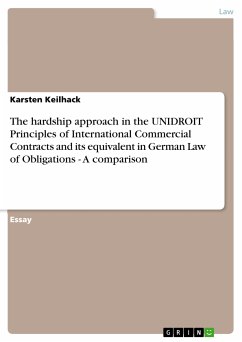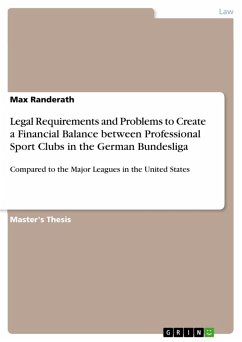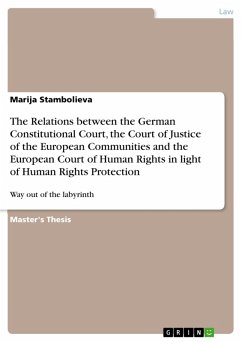
Third Party Rights: A Comparison of English and German Law with Respect to the UNIDROIT Principles on International Commercial Contracts (eBook, ePUB)
Sofort per Download lieferbar
Statt: 17,95 €**
15,99 €
inkl. MwSt. und vom Verlag festgesetzt.
**Preis der gedruckten Ausgabe (Broschiertes Buch)
Alle Infos zum eBook verschenkenWeitere Ausgaben:

PAYBACK Punkte
0 °P sammeln!
Seminar paper from the year 2003 in the subject Law - Comparative Legal Systems, Comparative Law, grade: 75% (=With Distinction), Cardiff University (Großbritannien; Law School), course: Comparative Contract Law, language: English, abstract: The question as to whether a third party can be granted rights or protection based on a contract between two other parties to which the third party is a mere stranger is as old as the legal scholarship of contract law itself. Over centuries, quite different approaches to the issue have been evolved and embedded in different legal systems, each with its ow...
Seminar paper from the year 2003 in the subject Law - Comparative Legal Systems, Comparative Law, grade: 75% (=With Distinction), Cardiff University (Großbritannien; Law School), course: Comparative Contract Law, language: English, abstract: The question as to whether a third party can be granted rights or protection based on a contract between two other parties to which the third party is a mere stranger is as old as the legal scholarship of contract law itself. Over centuries, quite different approaches to the issue have been evolved and embedded in different legal systems, each with its own characteristics and features. This essay intents primarily to analyse and compare the approaches of English1 and German Law to third party rights arising from bilateral contracts, particularly with regard to contracts for the benefit of a third party and the new Contracts (Rights of Third Parties) Act 1999. However, despite this main focus, some other features related to third party involvement in mutual contracts will be considered too. In the first and the second part of this essay I will describe the modus operandi of English and German law with regard to third party rights and highlight differences and similarities. The third part of this paper concerns the approach of that what is sometimes called an international restatement of contract law, namely the UNIDROIT Principles of International Commercial Contracts,2 to the rights of third parties. A comparison of the English and German system with the restatement will illustrate to what extent elements of these two national legal systems have been implemented and considered in an international project of unification of law.
Dieser Download kann aus rechtlichen Gründen nur mit Rechnungsadresse in A, B, BG, CY, CZ, D, DK, EW, E, FIN, F, GR, HR, H, IRL, I, LT, L, LR, M, NL, PL, P, R, S, SLO, SK ausgeliefert werden.













